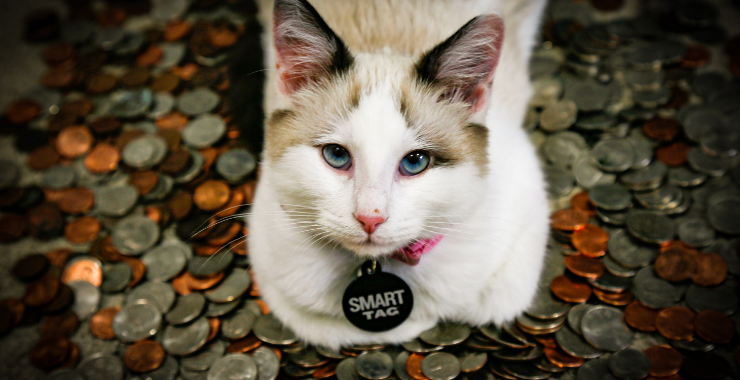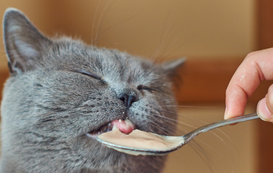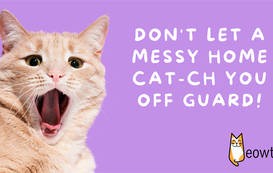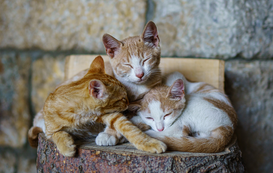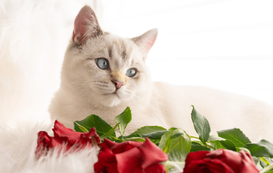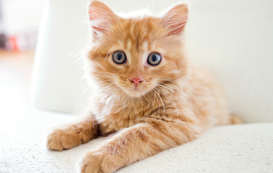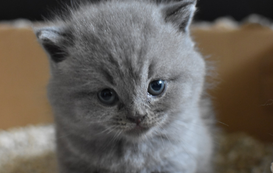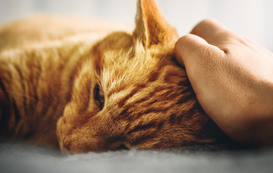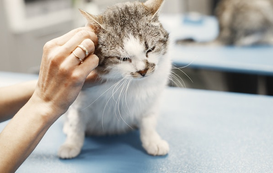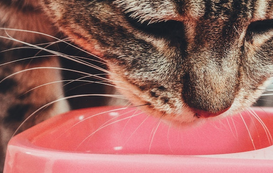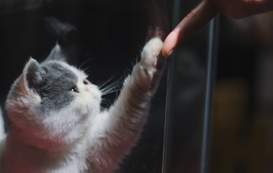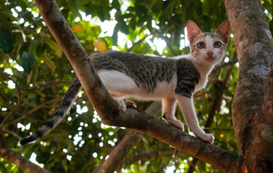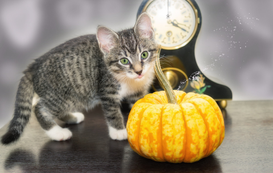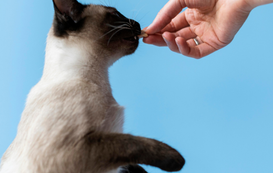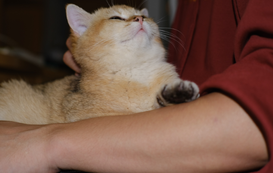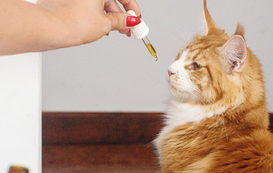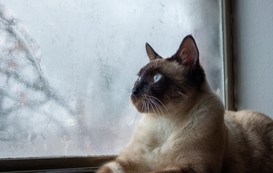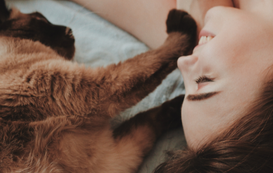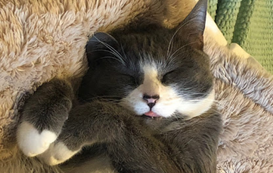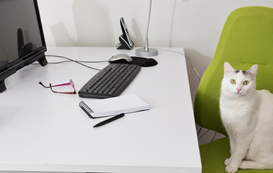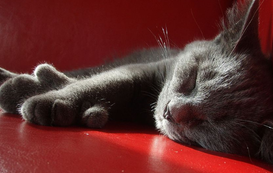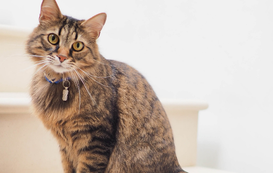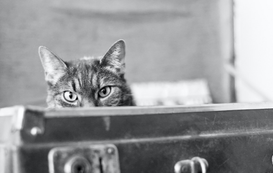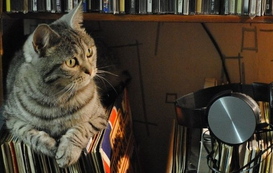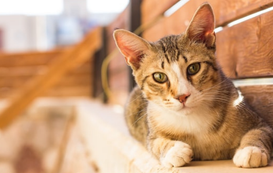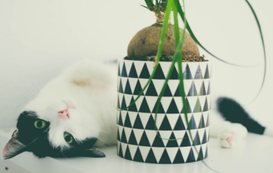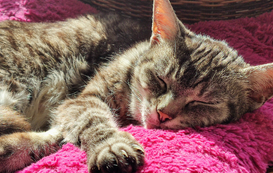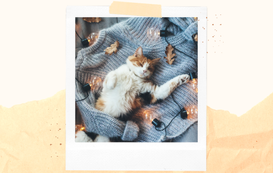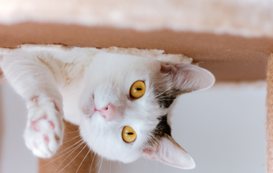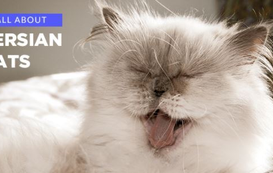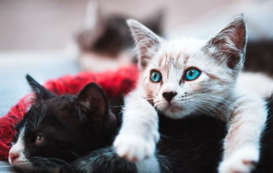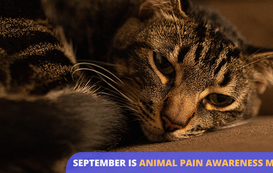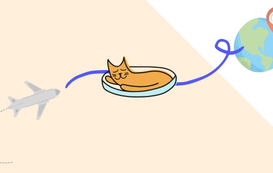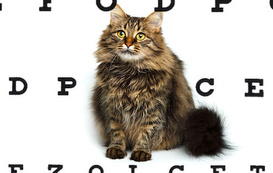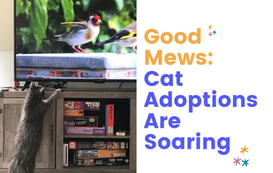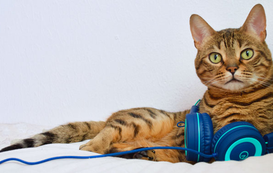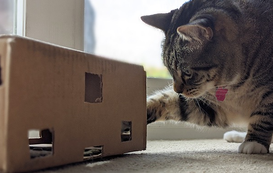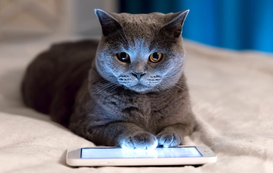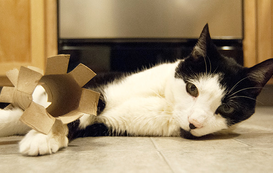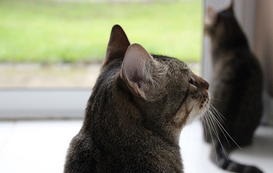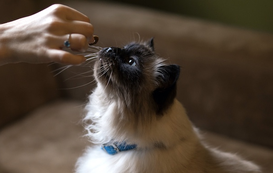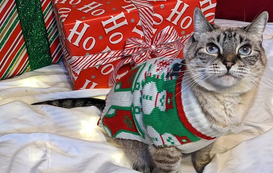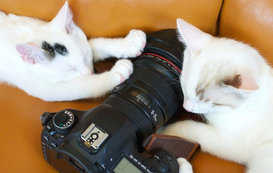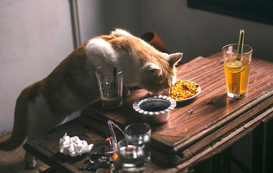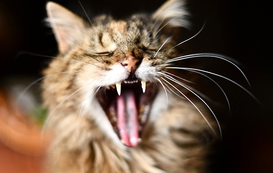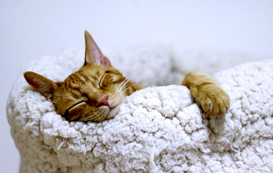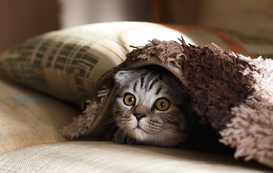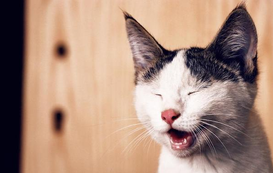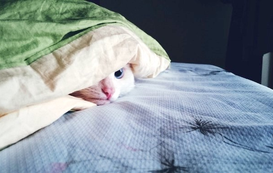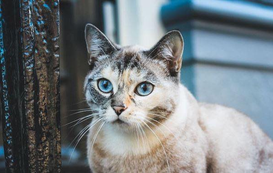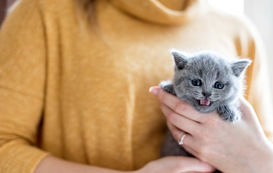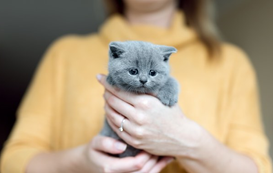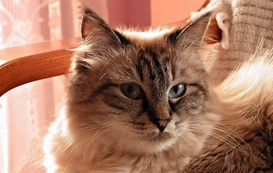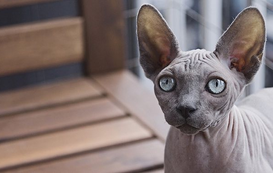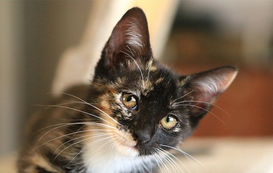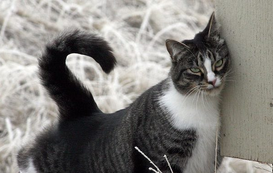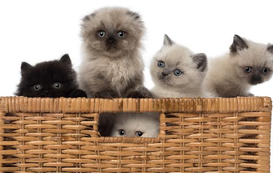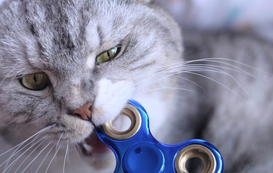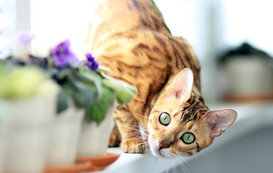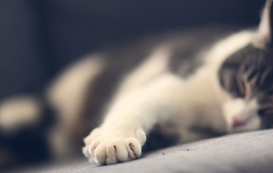One thing's for sure: When it comes to the bottom line, times are tough right now.
From rising food costs to soaring gas prices, everyone is feeling the pinch.
The cost of cat supplies and accessories can also add up very quickly these days. If that means you have begun making a few kitty-centric slashes to your budget, you may feel like a less-than-purrfect cat parent. After all, you want to spoil your sweetie, not cut corners!
Don't worry - you'll still be an ameowzing hooman in your kitty's eyes so long as you're smart about where you curb your spending.
Check out these tips on how to save money while still taking great care of your cat:
Dollar Dilemma One: I can't afford pet insurance.
As much as we'd rather not think about it, we must prepare for the fact that our cats may someday become ill or injured. While pet insurance is a great safety net to have in your financial toolbox, you can still create a backup plan for covering veterinary expenses if you can't afford pet insurance premiums. Simply put what you can spare into an interest-yielding bank account earmarked for pet expenses (just don't be tempted to use it for anything else). Saving as little as $20 can add up over time and could mean the difference between getting adequate care for your kitty and making a tough decision based solely on financial means. So, set aside every little bit you can, and your future self and your furry friend will thank you.
Dollar Dilemma Two: I can't afford fancy, high-priced cat food.
We'd all love to buy the most expensive food for our kitties. We'd also like a 12-course gourmet meal for our dinners if we had our druthers. Rest assured, pet food has to meet specific nutritional and quality standards before ending up on the market, so unless you've been directed to use a particular formula by a vet, you don't need to feel obligated to buy costly food for your cat when times are tight. (Be sure to speak to your veterinarian about switching to a different cat food if your kitty has any chronic health issues or special dietary needs.)
Dollar Dilemma Three: I can't afford annual vaccinations.
When you adopt a new cat or kitten, it is crucial to get them started off on the right paw by providing them with their vaccinations and, of course, a thorough vet examination. (remember: regular checkups are not the place to cut costs, even if your kitty seems well). However, you may not need to get your cat shots every year. Ask your vet which ones need to be updated and how often they should be administered. For example, you may be surprised that some shots only need to be given again after three years.
Dollar Dilemma Four: I can't afford the latest, greatest kitty toys.
That's okay. Your kitty told us that it is all about spending quality time with you, not the fancy stuff you buy them. However, any kitty gets bored with their old toys from time to time. The cost-effective solution? Start looking around your house for things you can use as new toys. For instance, there is much to be said for an old golf or ping-pong ball rolled across a kitchen floor. (BTW: It is a myth that cats should play with balls of yarn - never give one to your kitty as it can pose health hazards, as can other common household items.) Into crafting or DIY projects? From socks to paper towel rolls to old shoeboxes, you can create playthings your kitty will enjoy for next to nothing... or actually nothing! Here are a few ideas for making your own kitty toys.
Dollar Dilemma Five: I can't afford grain-free or organic food.
Some people feel that grain-free food is better for their cats since undomesticated cats don't eat grains in the wild (the thinking is that these foods may be less likely to prompt allergies or cause tummy concerns due to being easier to digest). However, many experts say that since domesticated cats' digestive systems have evolved to handle starches well, there is no need for this type of diet, and it's perfectly suitable to provide food with grains (which offer both nutritional value and a source of energy). As for costlier organic varieties, there's no real proof that organic food is better for cats than other options. (Note: Always be sure to check with your cat's veterinarian when it comes to dietary recommendations and before making changes to your cat's diet.)
Dollar Dilemma Six: I can't afford a luxurious pet bed.
Like many cat accouterments, there is a wide range of prices for kitty beds; this is a case where more expensive doesn't necessarily mean better. Higher prices are usually about human-focused aesthetics, such as a cat bed that (inexplicably) looks like a Victorian chaise lounge. And guess what else? Cats. Sleep. Anywhere. Many a cat parent has plunked down a chunk of cold, hard cash for a great bed only to catch their kitty curled up in a cardboard box as if it were the best sleeping spot ever. You can even create your own designated kitty-crash-pad if you're so inclined - check out How To Make 6 Cat Beds for Your Furbaby.
The Takeaway
When you know where you can kindly cut kitty-care costs, you'll feel better about providing for your bestie when times are lean. So say, 'Goodbye, guilt!' and 'Hello, contented kitty!' by making smart budgeting decisions.
Meowtel provides purr-iceless peace of mind at rates that start at just $20 for 20 minutes of in-home care. You can find a sitter that works for your budget by starting your search here.
Photo created by www.freepik.com
Ready to find the purrfect sitter for your feline friend? Find a cat sitter on Meowtel today!

